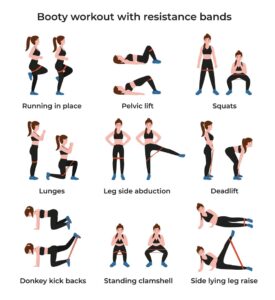Low libido, or reduced sexual desire, is a common concern for many men. If you’re wondering how to increase low libido in men, you’re not alone. Decreased sexual drive can be caused by a variety of factors, including hormonal imbalances, stress, relationship issues, and certain medical conditions. In this comprehensive guide, we’ll explore the causes of low libido in men and provide practical strategies on how to increase low libido and reignite your passion.
Understanding Low Libido in Men
Before we dive into how to increase low libido in men, let’s first understand what libido is and what can cause it to decline. Libido refers to a person’s overall sexual drive or desire for sexual activity. It is a complex interplay of biological, psychological, and social factors. Some common causes of low libido in men include:
Hormonal imbalances:
Testosterone, the primary male sex hormone, plays a crucial role in sexual desire. As men age, testosterone levels naturally decline, which can lead to decreased libido.
Stress and anxiety:
Chronic stress and anxiety can take a toll on your mental and physical health, including your sexual desire. When you’re stressed, your body releases cortisol, which can interfere with testosterone production.
Relationship issues:
Unresolved conflicts, lack of communication, and emotional disconnection in a relationship can contribute to low libido.
Medical conditions:
Certain medical conditions, such as diabetes, obesity, heart disease, and depression, can impact sexual function and desire.
Medications:
Some medications, particularly antidepressants and blood pressure medications, can have side effects that include decreased libido.
Lifestyle factors:
Poor diet, lack of exercise, smoking, and excessive alcohol consumption can all contribute to low libido.
Strategies on How to Increase Low Libido in Men
Now that we’ve explored some of the common causes of low libido in men, let’s look at practical strategies on how to increase low libido and reclaim your sexual vitality.
1. Optimize Your Testosterone Levels
Since testosterone plays a vital role in sexual desire, optimizing your testosterone levels can be an effective way to increase low libido in men. Some natural ways to boost testosterone include:
- Engaging in regular exercise, particularly resistance training
- Maintaining a healthy weight
- Getting enough sleep
- Reducing stress
- Eating a balanced diet rich in healthy fats, zinc, and vitamin D
If you suspect you may have low testosterone, consult with a healthcare professional. They can perform a blood test to measure your hormone levels and recommend appropriate treatment options, such as testosterone replacement therapy.
2. Manage Stress and Anxiety
Chronic stress and anxiety can put a damper on your sexual desire. To increase low libido in men, it’s essential to find effective ways to manage stress and promote relaxation. Some strategies include:
- Practicing mindfulness or meditation
- Engaging in regular physical activity
- Pursuing hobbies and activities you enjoy
- Spending quality time with loved ones
- Seeking professional counseling or therapy if needed
3. Communicate with Your Partner
Open and honest communication with your partner is crucial for a healthy and satisfying sexual relationship. If you’re experiencing low libido, talk to your partner about your concerns and feelings. Work together to create an atmosphere of emotional intimacy, trust, and mutual understanding. Consider exploring new ways to connect emotionally and physically, such as:
- Scheduling regular date nights
- Engaging in non-sexual physical touch, like cuddling or massage
- Trying new sexual activities or fantasies
- Attending couples therapy or workshops
4. Adopt a Healthy Lifestyle
Making positive lifestyle changes can go a long way toward boosting your overall health and sexual well-being. To increase low libido in men, consider:
- Eating a balanced diet rich in fruits, vegetables, whole grains, lean proteins, and healthy fats
- Exercise regularly to maintain a healthy weight and improve circulation.
- Quitting smoking and limiting alcohol consumption
- Getting enough quality sleep each night
- Staying hydrated by drinking plenty of water
5. Address Any Underlying Medical Conditions
If you have any underlying medical conditions that may be contributing to low libido, it’s essential to work with your healthcare provider to manage these issues. Some conditions that can impact sexual desire include:
- Diabetes
- Heart disease
- Obesity
- Depression and anxiety disorders
- Hormonal imbalances, such as low testosterone or thyroid disorders,
By properly managing these conditions through medication, lifestyle changes, and other recommended treatments, you may see improvements in your libido.
6. Consider Natural Supplements
Some natural supplements may help increase low libido in men by supporting hormone balance, reducing stress, and promoting overall sexual health. However, it’s crucial to consult with a healthcare professional before starting any new supplement regimen. Some supplements that may be beneficial include:
Ashwagandha: An adaptogenic herb that may help reduce stress and improve testosterone levels.
Maca root: A Peruvian herb that may enhance sexual desire and function
L-arginine: An amino acid that may improve blood flow and erectile function.
Ginseng: An herb that may help improve sexual function and reduce stress.
Remember, while supplements can be helpful, they should be used in conjunction with a healthy lifestyle and under the guidance of a qualified healthcare provider.
Frequently Asked Questions (FAQ)
Is low libido a normal part of aging?
While it’s natural for libido to fluctuate throughout life, a significant and persistent decrease in sexual desire is not a normal part of aging. Many men maintain a healthy sexual drive well into their later years. If you’re experiencing low libido that is impacting your quality of life, it’s important to address the issue.
Can low libido be a sign of an underlying health problem?
Yes, low libido can sometimes be a symptom of an underlying health condition, such as hormonal imbalances, diabetes, heart disease, or depression. If you’re experiencing a persistent decrease in sexual desire, it’s essential to consult with a healthcare professional to rule out any potential medical causes.
How long does it take to see improvements in libido?
The timeline for seeing improvements in libido varies from person to person and depends on the underlying causes of the issue. By implementing the strategies discussed in this article, such as optimizing testosterone levels, managing stress, and adopting a healthy lifestyle, you may start to notice positive changes in your sexual desire within a few weeks to a few months.
Can medication help increase low libido in men?
In some cases, medication may be prescribed to help increase low libido in men. For example, if low testosterone is identified as the underlying cause, testosterone replacement therapy may be recommended. Other medications, such as Viagra or Cialis, can help improve sexual function but do not directly address low libido. It’s important to work with a healthcare professional to determine the most appropriate treatment plan for your individual needs.
Can pornography and masturbation contribute to low libido?
Excessive use of pornography and masturbation can sometimes contribute to low libido in men. This is because the brain can become accustomed to the high levels of stimulation provided by these activities, making it more difficult to become aroused by real-life sexual experiences. If you suspect that pornography or masturbation may be impacting your libido, consider taking a break or reducing your consumption to help reset your brain’s reward system.
Key Takeaways
Low libido, or reduced sexual desire, is a common concern for many men and can be caused by a variety of factors, including hormonal imbalances, stress, relationship issues, and certain medical conditions.
To increase low libido in men, it’s important to address the underlying causes and implement practical strategies for improving sexual health and well-being.
Optimizing testosterone levels through lifestyle changes and, if necessary, medical treatment can be an effective way to boost libido.
Managing stress, communicating with your partner, adopting a healthy lifestyle, and addressing any underlying medical conditions are all important steps in increasing low libido.
Natural supplements, such as ashwagandha, maca root, and ginseng, may help support sexual health and desire but should be used under the guidance of a healthcare professional.
Conclusion
If you’re struggling with low libido, remember that you’re not alone and that there are many effective strategies for increasing sexual desire and improving your overall sexual health. By taking a proactive approach and working with a qualified healthcare provider, you can reclaim your passion and enjoy a fulfilling sexual relationship.
References:
- Rizk, P. J., Kohn, T. P., Pastuszak, A. W., & Khera, M. (2017). Testosterone therapy improves erectile function and libido in hypogonadal men. Current Opinion in Urology, 27(6), 511–515.
- Saad, F., Aversa, A., Isidori, A. M., Zafalon, L., Zitzmann, M., & Gooren, L. (2011). The duration of the effects of testosterone treatment and the time span until maximum effects are achieved. European Journal of Endocrinology, 165(5), 675–685.
- Rajfer, J. (2003). Relationship between testosterone and erectile dysfunction. Reviews in Urology, 5(2), 122-128.
- Hamilton, L. D., Rellini, A. H., & Meston, C. M. (2008). Cortisol, sexual arousal, and affect in response to sexual stimuli. The Journal of Sexual Medicine, 5(9), 2111-2118.
- Leproult, R., & Van Cauter, E. (2011). Effect of 1 week of sleep restriction on testosterone levels in young, healthy men. JAMA, 305(21), 2173–2174.





